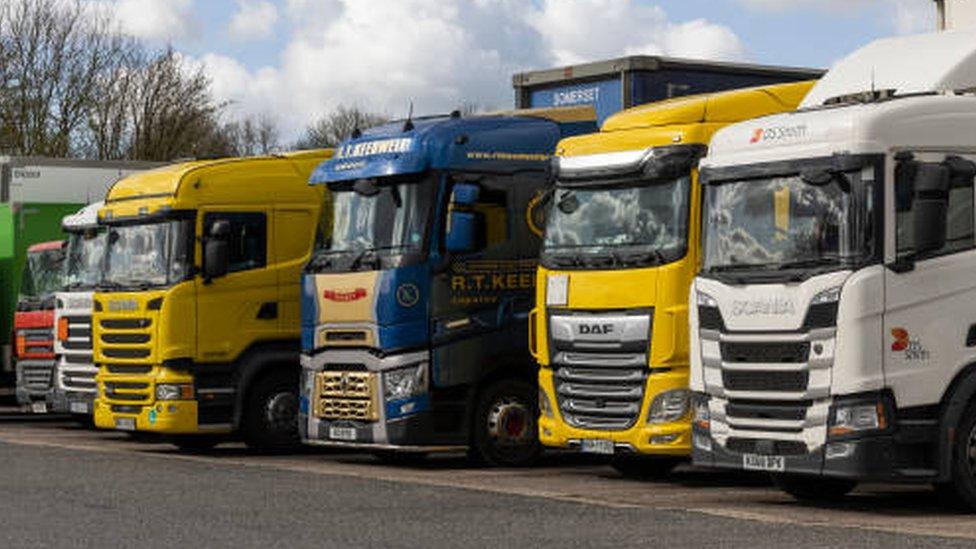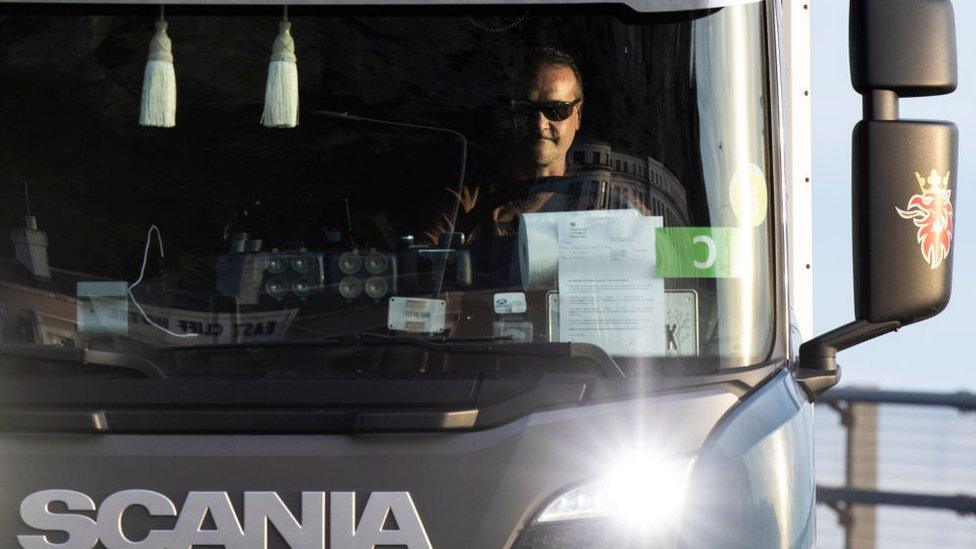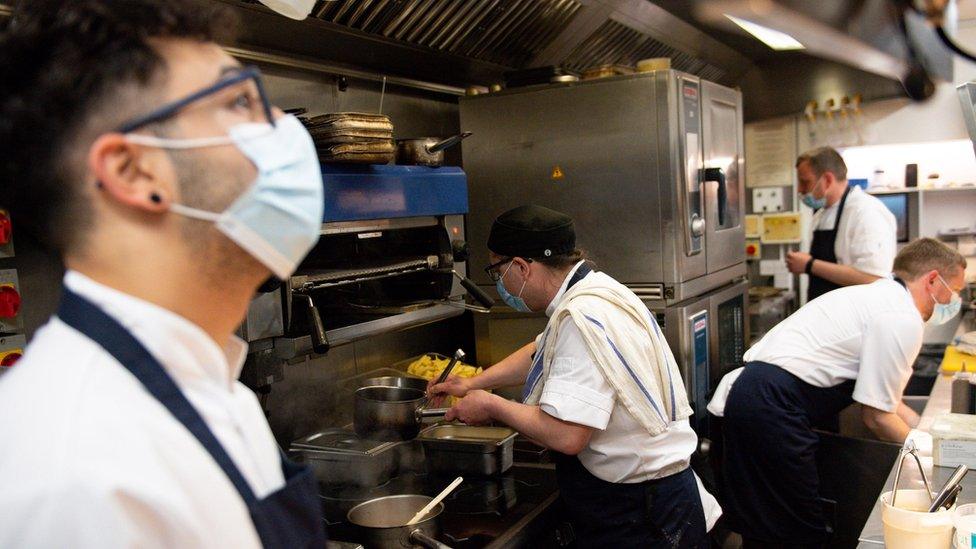Backlash against longer hours to ease lorry driver shortage
- Published

A temporary extension of lorry drivers' working hours has been met with backlash from the industry who say the government is applying a "sticking plaster" to driver shortage problems.
HGV drivers can increase their daily driving limits from nine to 10 hours or change weekly rest patterns on Monday.
Transport Secretary Grant Shapps said the move would give flexibility to drivers to make slightly longer trips.
But the Road Haulage Association said the move wouldn't make any difference.
The RHA believes there is currently a shortfall of about 60,000 lorry drivers and said the relaxation on driving hour limits was a "sticking plaster".
It estimates that some 30,000 HGV driving tests did not take place last year because of the Covid pandemic.
Right to refuse
"Relaxing drivers' hours won't make any material difference - and fails to address the underlying issues, which require a package of measures to fix," the RHA said.

The national officer for road transport at Unite the union, Adrian Jones, also said the announcement would do nothing to resolve the problem of driver shortages.
He added: "Unite will be advising its members to not place themselves in danger and that if they are too tired to drive safely, they have a legal right to refuse to do so.
"Unite will fully support those who make that decision, legally and industrially."
Logistics UK, which represents freight businesses, said longer hours would "heap more pressure on drivers who are already stretched to the limit to deliver".
James Firth, of Logistics UK, said the industry "vehemently opposed the extension" and said the government had "ignored the will of those who will be most affected by the changes".
"Existing drivers have been working flat out since the start of the pandemic, and this could be the final straw for many of them," he said.
"Instead of trying to paper over the gaps, government should be working with industry to produce a plan to support moving drivers through the current bottleneck of HGV driving tests."
Businesses and union officials have warned that the driver shortage jeopardises deliveries to supermarkets and other sectors of the economy.
The haulage industry is one of a number of sectors having trouble finding suitable staff as the economy reopens, leading some experts to talk of the UK's missing workers.
Among those worried is German confectionery giant Haribo, which has said it is struggling to deliver its sweets to shops in the UK.

Mr Shapps said the government had "ramped up" the number of driving tests available and would consider other measures.
The government said driver safety must not be compromised and operators must notify the Department for Transport if the relaxation is used.
The RHA's chief executive, Richard Burnett, said it opposed wholesale extensions to drivers' hours, believing they could be counter-productive by making the job less attractive.
"Loading more hours on to drivers that are already exhausted is not the answer - the problem needs more than just a sticking plaster," he added.
"Ministers should be mindful that road safety is the reason HGV drivers' hours are limited. Relaxing them should only be used as a last resort to resolve short-term issues that cannot be addressed in other ways."
Mr Burnett said that as the shortage worsened, drivers' pay rates were going up, often substantially.
"Suppliers and retailers should be prepared that these additional costs will be passed on," he added.
A government spokesperson said it had "already taken action on HGV driver shortages, including ramping up vocational test capacity, and funding apprenticeships".
"Most of the solutions, however, are likely to be driven by industry, with progress already being made in testing and hiring, and a big push towards improving pay, working conditions and diversity," they added.
Related topics
- Published2 July 2021

- Published11 June 2021
